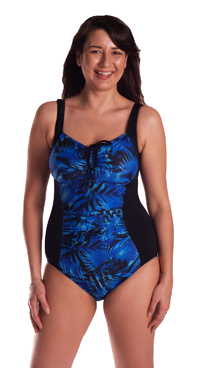How to avoid the effects of chlorine on the skin and swimsuits
How to avoid the effects of chlorine on the skin and swimsuits
The smell that hits you when you walk into an indoor pool venue is overwhelming. Chlorine in gas form was used in WW1 and is capable of killing a human so why do we have to use it in our pools?
The fact is that we need it in our pools. Heavy use of chlorine destroys bacteria in warm water so its use is necessary. It is a disinfectant and can kill diseases like e-coli, viruses and bacteria. It is little wonder that it wreaks havoc on our swimwear.
We often worry about what chlorine is doing to our skin as well as destroying our swimwear. All year round swimming in heated pools is delightful and great for exercise so we don’t want to deny ourselves the pleasure. Chlorine can irritate your eyes, dry out your skin and damage your hair so how can we protect ourselves and our swimwear from the harsh effects?
Here are some hints and tips to protect your skin and swimwear
- Invest in chlorine resistant swimwear. Traditional swimwear fabric is made from nylon/elastane or nylon/lycra. This means that filaments of elastic is woven with nylon to produce a fabric that can stretch and hold its shape. Unfortunately just like leaving an elastic band in the sun, the elastic fibres become brittle when exposed to chemicals like chlorine and the sun and break causing the fabric to lose its shape. Chlorine resistant swimwear fabric is made without any elastic. The polyester PBT is specially woven to provide stretch without the need for elastic. This means that it won’t lose its shape or colour. A chlorine resistant swimsuit might be slightly more expensive at first but well worth the investment.
- Rinse off. As soon as you get out of the pool make sure to shower in cool fresh water to rid your skin of chlorine. Hot water can effect the elastic used in the leg and arm openings of your chlorine resistant swimwear so avoid when possible. A skin cleanser that contains vitamin c will help.
- After rinsing, wrap your swimsuit in a dry fresh towel until you get home. Hand wash in cool fresh water with a mild detergent and hang in the shade.
- Take Vitamin C. Ascorbic acid (Vit C) neutralises chlorine so if you swim regularly try to take a supplement daily – 4000mg each morning as it is not stored in the body.
- Take a probiotic. Swallowing small amounts of chlorinated water can destroy the good flora in the gut so take a probiotic to restore gut health.
- Moisurise after swimming. As the chlorine dries the skin, applying a moisturiser can help. If you can use a lotion that contains vitamin C and E – even better by neutralising any residual chemicals left on the skin.
If you cannot invest in chlorine resistant swimwear these tips can help to prolong the life of a lycra swimsuit and protect your skin from the effects of heavy chlorination.
For the best range of plus size chlorine resistant swimwear visit www.seajewelsswimwear.com.au or Freecall 1800 008 482